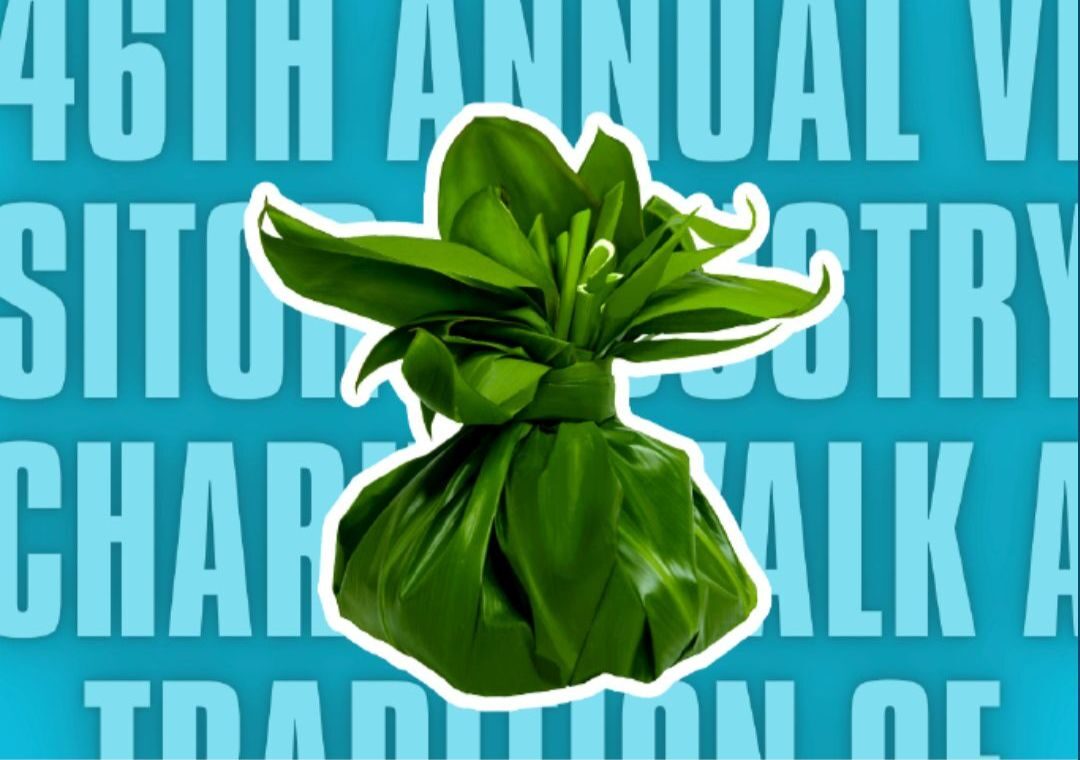At the Kauaʻi Catholic Charities office, a powerful gathering took place as people from all walks of life came together to support those re-entering society after serving time at the Kauaʻi Community Correctional Center. Employees from Target, The Clinic at Līhuʻe, the Department of Corrections, the Prosecutor’s Office, and the Hawaiʻi State Rural Health Association joined Catholic Charities Hawaiʻi (CCH) to provide essential resources for those transitioning back into the community.
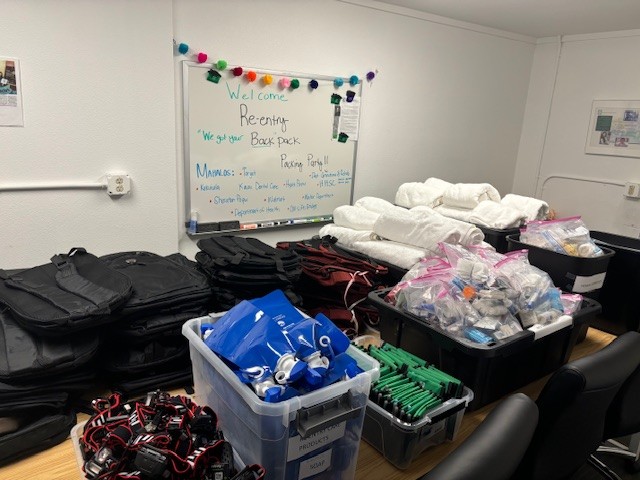
The Clinic at Līhuʻe had provided the initial phones and bus passes and continued to supply them to those in need. Representatives from the Department of Corrections and Rehabilitation and the Prosecutor’s Office also attended, all united in the shared goal of helping people reintegrate successfully into the community. There were also members from the Hawaiʻi State Rural Health Association, who had recently awarded a $5,000 grant to the cause, and staff from Catholic Charities Hawaiʻi (CCH), including the pivotal Melody, whose leadership had been instrumental in bringing the initiative to life.
Catholic Charities Hawaiʻi has long been known for its work with vulnerable populations on Kaua’i, serving the elderly, disabled, foster youth, and those living in poverty. The organization’s mission is clear: to help people in need help themselves, regardless of their faith. They are driven by the belief that no one should fall through the cracks of society, and they understand the importance of providing what they call “gap services”—a safety net for those whose needs might otherwise go unmet.
One of the most pressing gaps identified by CCH was the plight of individuals re-entering the community after being incarcerated. On average, 30 men and 10 women are released from the Kaua’i Community Correctional Center every month, often with nothing but the clothes on their backs and a past that seems impossible to escape. These individuals have no place to call home, no transportation, no phone, and often no way to find a job or connect with loved ones. In short, they are at a severe disadvantage, making their transition back into society incredibly difficult.
Many of them, when released, find themselves at the doorsteps of Catholic Charities, asking for help. The organization knows that without support, these individuals are at risk of falling back into the cycle of incarceration. The community, as a whole, understands that if they want to break this cycle, they need to provide resources and support for those taking their first steps into freedom.
That’s where the care packages come in. Each care package is crafted with thoughtful attention to the needs of those re-entering society, filled with the resources that would give them a fighting chance to start anew.
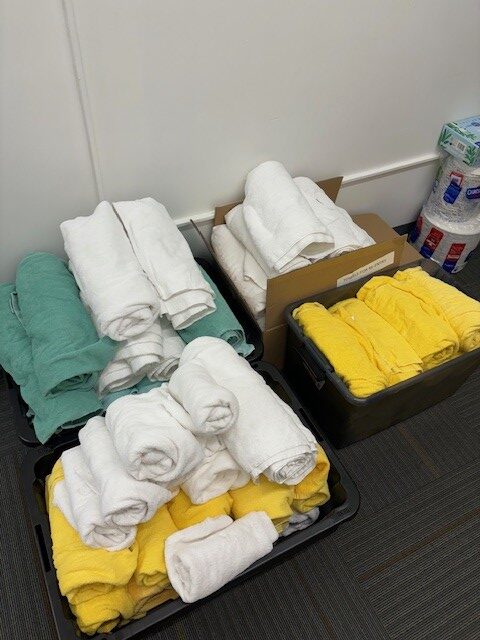
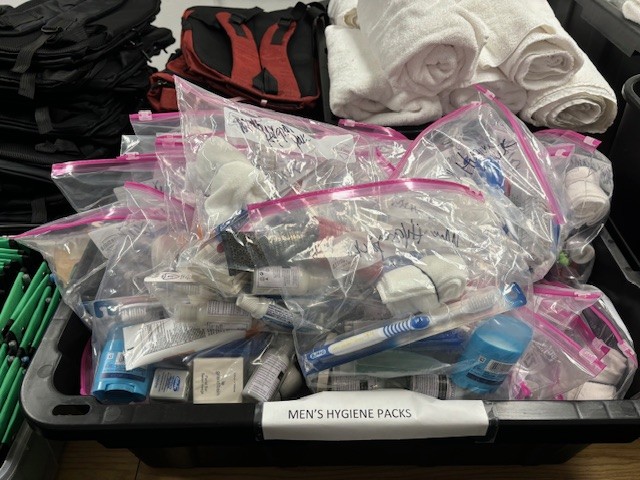
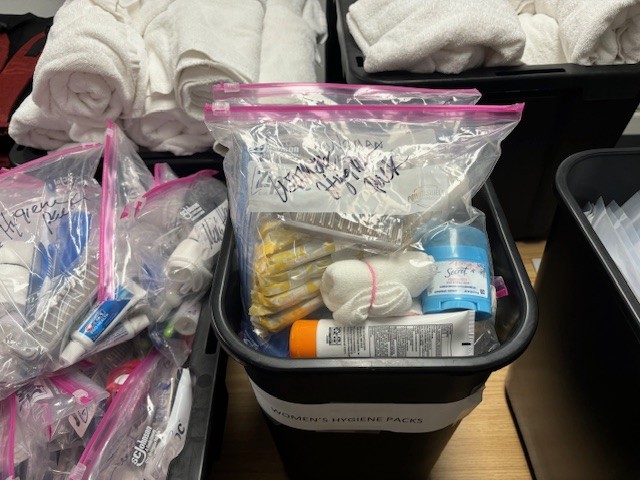
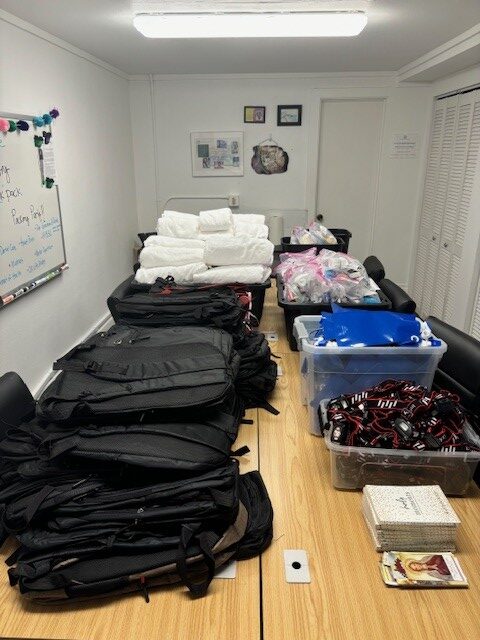
The care package includes a durable backpack, hygiene items such as soap, shampoo, conditioner, deodorant, toothbrush, toothpaste, dental floss, hairbrush, washcloth, small towel, and sanitary products, along with 5 daily bus passes and a holder. It also contains a water bottle, an emergency kit with a waterproof pouch and band-aids, resource literature on local services, a clothing voucher from the Salvation Army, a flashlight or headlight, and a pen. The thoughtful and practical contents of the care packages aren’t just about survival—they are about giving these individuals the tools they need to rebuild their lives, feel dignified, and take the first steps toward reintegration into society.
Since starting the initiative last August, Catholic Charities Hawaiʻi has distributed over 125 backpacks to date, each one carrying with it a glimmer of hope and the promise of a new beginning. These backpacks have made a tangible difference in the lives of those re-entering the community, providing them with the basic necessities and resources they need to get back on their feet.
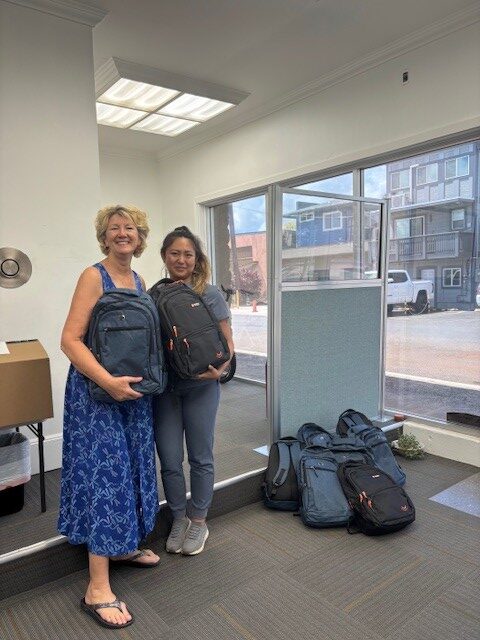
As the attendees gathered at the Kauaʻi Catholic Charities office that day, the sense of hope in the room was palpable. It wasn’t just the physical donations that mattered—it was the partnership, the collective effort of individuals and organizations that understood the power of second chances. The collaboration between Catholic Charities Hawaiʻi, Target, The Clinic at Līhuʻe, the Department of Corrections, the Prosecutor’s Office, and the Hawaiʻi State Rural Health Association spoke to the island’s deep-rooted commitment to caring for its own. Other community members, including Kukuiʻula Poipu; Grand Hyatt Regency; Sheraton Kauaʻi; Costco; Walmart; Department of Health Kauaʻi; the Department of Water Kauaʻi and the Salvation Army, who could not attend the gathering were just as instrumental in their support for this initiative with their generous donations.
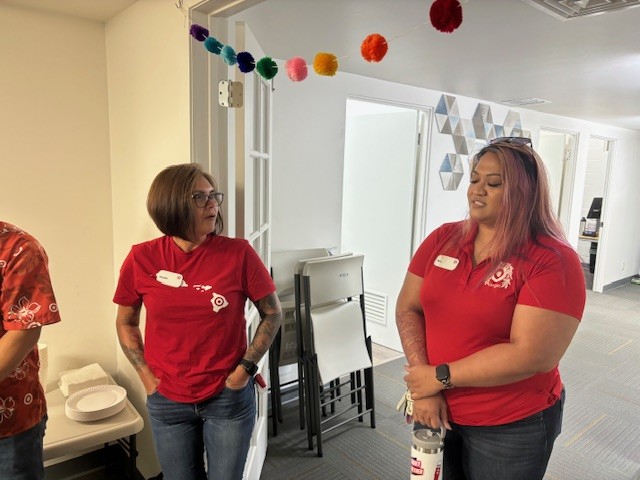
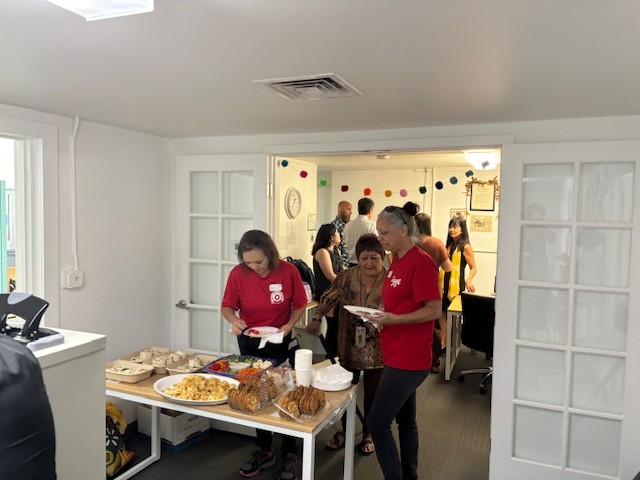
As the morning wore on, Melody, the Kauaʻi Program Administrator from CCH, stood up to address the group, her voice steady and full of gratitude. “This is about more than just giving care packages,” she said. “This is about giving hope, dignity, and a chance at a new life. We all play a part in making sure that those who are re-entering our community don’t have to do it alone.”
The room erupted in applause, a collective recognition of the power of community. In that moment, everyone there understood that they weren’t just handing out items—they were handing out a lifeline. The care packages were a symbol of a community that cared, that believed in the potential of every individual, no matter their past.
For those who would soon receive these packages, the transition would be far from easy. But with the support of Catholic Charities Hawaiʻi and its community partners, they would have a better chance. They would have a fighting chance to rebuild their lives, find stability, and become contributing members of society.
It was a reminder that the path to redemption is not one that anyone should walk alone, and that when a community comes together, miracles happen—one step, one care package, at a time.

